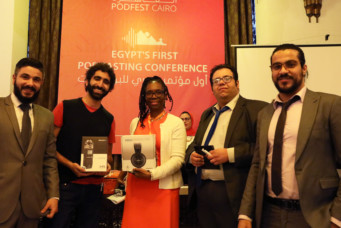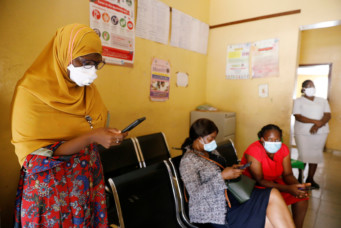Toward Anti-racism Education in the African Context
What would African educational systems look like without colonial influence? Answering such questions may guide educators in the various communities of the African continent to imagine something re-centered around indigenous experiences. Anti-racism is an important part of that answer

The advent of colonialism in 1492 had detrimental impacts on the socio-economic development of African nations, including on education. The colonists instituted their educational systems to subjugate and assimilate Africans, and weaponized it as a tool for the underdevelopment of Africa ever since. To date, Africa continues to be ravaged by economic subjugation, miseducation, deculturization, and extractivism by foreign colonial powers. Prominent historians and thinkers like Walter Rodney, Franz Fanon, Aime Cesaire, Kwame Nkrumah, Ivan van Setima, and Cheikh Anta Diop, to mention a few, have all written in-depth analyses of colonial domination in Africa.
Rodney, for example, notes in How Europe Underdeveloped Africa that the continent’s history of colonial dominance has paved the way for the development of the current educational systems, derivative of colonialism and imperialism. This has therefore privileged European and Western knowledge and practices.
In Colonial Education in Africa: Retrospect and Prospects, pedagogy scholar William H. Watkins notes that the “European curriculum continues to dominate many countries of Africa” even after the end of “direct colonialism”. Similarly, in The Resurgence of the African World in the 21st Century, Africologist Molefi Kete Asante points out that Europeans have been the “designers of our mis-education”.
As such, Africa could benefit from anti-racism education to begin the process of decentering Euro-western coloniality and whiteness, explains Niketa Afia Peters, educational consultant, poet, and ancestral knowledge protector, and George Sefa Dei, scholar in the Department of Social Justice Education at the Ontario Institute for Studies in Education.
How can we use anti-racism practices and analytical framework to decolonize education in Africa?
To redress the current educational malaise, African systems and structures must prioritize anti-racism and decolonial education to reflect African histories, cultures, values, knowledges, experiences, and ancestral ways of knowing and being; decolonial education approaches align with anti-racism education. In Actualizing Decolonization: A Case for Anticolonizing and Indigenizing the Curriculum, Dei and Alessia Cacciavillani assert that decolonization is anchored in different practices, including: the deconstruction of colonial power and knowledges, indigenous teachings and perspectives, resistance to colonial and imperialist dominance, relationality, critical curricula that challenge ongoing coloniality, engaging in learning based on respect and appreciation for the land, and incorporating indigeneity as pedagogical practice. It offers alternative ways of understanding and producing knowledges, acting as a catalyst for social and educational change.
Education is a microcosm of a larger society, and according to Nelson Mandela, serves as the “most powerful weapon you can use to change the world”. In How Europe Underdeveloped Africa, Rodney establishes that “education is crucial in any type of society for the preservation of the lives of its members and the maintenance of the social structure.” Education, then, should be transformative and address the challenges and needs of the people. African educational systems should advance their people culturally, politically, spiritually, socially, and economically by requiring, Rodney asserts, that they return to their ancestral archives to understand that “the most crucial aspect of pre-colonial African education was its relevance to Africans”.
Working with the idea of making education relevant to Africans, we examine the role of anti-racism education in addressing the racist colonial legacies ingrained in African educational systems. We also draw on De/anti-colonialism, Critical Race Theory (CRT), and Integrative Anti-Racism to theorize the value of anti-racism education within the African context. It is important to note that race and racialization are socially and historically co-constructed with other sites of difference. Race is formed through the process of racialization, whereby groups are constructed by attributing racial significance to them for political objectives. We believe that as a result, race becomes relevant in the African context given the process of racialization, where class, gender, sexual orientation, and disability can be tropes for racializing people as different and subjecting them to unequal and differential treatment. It also necessitates that the potential for integrating anti-racism education into educational systems, curricula, and epistemologies be considered.
The question of what it means to radically rethink education by reclaiming and recentering local and national African indigenous knowledges and practices can be answered through practical strategies for implementing anti-racism education in practice. It is our hope that this text will inspire further critical analysis of African educational systems and propose new ideas for their indigenization.
What is the starting point to recenter knowledge?
We begin by acknowledging our ancestors and elders whose collective knowledge and wisdom we walk in daily. It is their teachings and wisdom that we lean on to write this text.
It is important to acknowledge our social locations because it influences our worldview and “how we build relationships, educate others, and conduct research.” In Choosing the Margin as a Space of Radical Openness, bell hooks states that locating ourselves within the margins and understanding marginality as a space of resistance are imperative for “radical openness and possibility.” Locating ourselves within society makes clear the possibilities and limitations of our knowing and theorizing.
Therefore, we understand that our identities and lived experiences will inform our knowledge production in this text. I, Niketa Afia Peters, am a Black African, able-bodied, and able-minded woman who was born in the Global South, in Guyana, and was raised and educated in the Global West. My interest in the topic of anti-racism education within Africa is both political and personal. Education should unchain people from colonialism that has taken root in their minds and bodies and liberate them in all spheres of their lives. My experiences of historical displacement, socioeconomic privileges and disadvantages, anti-Black racism and anti-Blackness, western education, sexism, and African indigeneity and history inform my discussion on anti-racism education. The lens from which I write is critical for challenging universalized Euro-western hegemonic knowledges within African educational systems.
I, George Sefa Dei, am a Ghanaian-born, able-bodied and able-minded man. I completed my primary and undergraduate education in Ghana. My graduate studies were completed in Canada. Therefore, I have lived experience and knowledge of African educational systems. I enter this discussion as someone who holds extensive knowledge about race and racism, anti-racism education, Indigenous knowledges and decolonization, education in African contexts, anti-racism research, and anti-colonial thought. Much like Africa, Canada has a history of colonialism and its imprints have been systemically embedded in the educational systems. Anti-racism education connects contemporary racist practices and ideologies to Canada’s history of colonialism. Given Africa and Canada’s histories of colonial domination, anti-racism education is crucial for uprooting deep-seated colonial ideas within the systems. I ask, what would African educational systems look like without colonial influence?
What role does anti-racism education play?
Dei in Anti-racism Education for Global Citizenship and Audrey Thompson in For: Anti-Racist Education assert that anti-racism is about the critical examination of racism as well as creating ways to resist dominant and hegemonic systems that privilege Whiteness and perpetuate racism. Anti-racism considers the ways in which race interlocks with other social differences such as class, gender, sexual orientation, and (dis)ability to further oppress individuals and groups. Social work researchers Sheliza Ladhani and Kathleen Sitter, in The Revival of Anti-Racism: Considerations for Social Work Education, explain that anti-racism actively disrupts systems of oppression. Put simply, anti-racism is concerned with understanding racism, challenging unequal power structures, and eradicating racism and other forms of oppression.
Similar to anti-racism, in Anti-Racism for Global Citizenship, Dei describes anti-racism education as “an action-oriented educational strategy to deal with racism, White power, and White privilege, including how these concepts intersect with other forms of difference and oppression.” Dei further explains in Anti-Racism Education: Theory & Practice that anti-racism education is an approach that acknowledges race as a social construct that has been utilized as a tool of othering. It takes a comprehensive approach, recognizing that particular knowledges and lived experiences are delegitimized and excluded from the educational systems. Ladhani and Sitter note that anti-racism “[politicizes] education to uncover and dismantle the structural roots of inequality.” It acknowledges the role of historical education in creating and sustaining oppressive systems and structures. Fundamentally, the core of anti-racism education is justice and liberation. It is a marriage of critical theorizing and pragmatic practices to address dominance in education and beyond.
Why anti-racism in Africa?
Given the saliency of race in anti-racism education, one might question the relevance of anti-racism in Africa given that Africans are predominantly Black. Anti-racism education is not solely about race and racism. It considers the ways in which classism, heterosexism, ableism, and other forms of oppression intersect with racism. Additionally, racism, coloniality, and white supremacy have been structurally embedded into African educational systems, as they have been inherited from colonial powers. An anti-racism education would therefore prove critical in addressing the historical and ongoing challenges faced by the continent.
In The Destruction of Black Civilization: Great Issues of a Race from 4500 B.C. to 2000 A.D., sociologist and historian Chancellor Williams explains that “the ideologies and value system of the oppressors quite unconsciously become those of the oppressed, even when the result is demonstratively against themselves.” Consequently, some Africans have internalized colonial racist narratives that subsequently cause them to reject their local Indigenous knowledges and practices and give preference to White ways, as White people are perceived as more legitimate and knowledgeable.
In Revitalizing African Indigenous Ways of Knowing and Knowledge Production, sociologist Hassan O. Kaya states “little attention [is] given to African indigenous literary and philosophical traditions, as they tend to be viewed as primitive and unscientific, as well as improper sources for social theory and research development.” Therefore, anti-racism education is one way of unyoking the White colonial programming. In African Betrayals and African Recovery for a New Future, Molefi Kete Asante declares that “new forms of thinking and new ways of asserting ourselves in our own history must be invented. This means that African scholars must think beyond Europe.” Africans, in general, must break free of Euro-western doctrines.
In thinking beyond Europe, anti-racism education offers possibilities for centering African perspectives, histories, and cultures in the curricula. Anti-racism education would pose critical inquiries about how to rehumanize African education and histories, the function of community in educational development, and the prospects for integrating African Indigenous knowledges in educational and non-educational systems. Further, an anti-racism education approach would examine the ways in which African individuals and institutions uphold anti-Black (African) racism and provide recommendations for addressing internalized racism and colorism. For writer Audrey Lorde reminds us in Age, Race, Class and Sex: Women Redefining Difference that the “true focus of revolutionary change is never merely the oppressive situations which we seek to escape, but that piece of the oppressor which is planted deep within each of us.”
How do we imagine something different for African education?
An aspect of anti-racism education involves critically (re)thinking the ways in which we understand race and racism as well as how we engage with dominant systems of oppression. As a starting point, Africans might ask interrogating questions about the current educational systems. For example, do Africans benefit from the current educational systems? Who gains from the existing policies and curricula in education? Will a strong and united Africa be built with the current curricula and educational institutions? How might Africans disrupt epistemic colonialism? How might Africans begin to dismantle white power structures within education systems, policies, and practices? How do Africans escape the entrapments and programming of colonialism? What would curricula look like if they educated learners for life rather than merely the labour force? What knowledges and teachings should learners engage with? What does anti-racist leadership look like? How do Africans (re)define and measure academic success using African knowledges and principles?
Radically (re)imagining the future of the policies, practices, and curricula of African educational systems is another aspect of anti-racism education.
In Why Social Movements Need Radical Imagination, sociologists Alex Khasnabish and Max Haiven identify radical imagination as “not just about dreaming of different futures. It’s about bringing those possibilities back from the future to work on the present, to inspire action and new forms of solidarity today.” Accordingly, how might Africans reimagine educational systems and curricula?
Africans need to ask new questions as they continue to consider the challenges in their educational systems. Africans must extend their questioning to involve the integration of their cultural wealth. For instance, how do Africans reorient their consciousness in African indigeneity and traditions? What is the role of local communities in education and learning? What role do the Elders play in learning and education? How do Africans integrate Indigenous knowledges into their knowledge production and theorizing? How does spirituality fit into the educational systems? In what way might Africans integrate indigenous educational ways of knowing into the curricula? How might Africans (re)humanize education and African people?
What next?
Some possibilities that might emerge from these noted questions may include decolonizing education, incorporating Indigenous knowledge systems and practices, addressing internalized racism, community engagement, and intersectionality. First, among others, decolonizing education offers the possibility for what historian Achille Joseph Mbembe, in his article titled Decolonizing the University: New Directions, describes as (re)centering African ways. This involves positioning African histories, cultures, perspectives, and knowledges at the center of learning and knowledge production. Second, Africans should also lean on proverbs, the land, ancestral stories, songs, and nature (science and spirituality) for indigenizing their practices and knowledges. Third, beyond interrogation of the impact of internalized racism, active efforts should be made to combat colorism and the privileging of Whiteness in African societies. Fourth, Kaya recommends “involving community knowledge holders in research, teaching, and learning” as a means of community engagement. Fifth, Africans should consider respecting and valuing the strength in social differences (sex, age, gender, (dis)ability, etc.). The integration of these possibilities could radically change the course of education in Africa.
International, national, and regional efforts will be essential to address disparities and forge new possibilities for systemic educational change across the continent. Internationally, African governments must prioritize implementing legislation that mandates school attendance for children aged five to eighteen. Governments at the national and regional levels should create policy measures regarding appropriate funding allocation. There should be enough funding to guarantee that all children, regardless of gender, socio-economic status, location, or mental, intellectual, or physical abilities, have free, inclusive, and accessible quality education. Policies and standards must be developed to improve teaching and teacher education. Further, national and regional authorities should mandate the inclusion of African history and indigenous cultures as essential components of the core curriculum.
How do we begin?
African systems and structures, especially the educational systems, are largely influenced by the legacies of colonialism, enslavement, and imperialism as well as ongoing coloniality and white supremacy. For this reason, anti-racism education is required to start the process of unlearning and eradicating coloniality and whiteness within African structures. With certainty, the incorporation of anti-racism education will be met with challenges; however, it is crucial for reinventing and rethinking African educational futures. Africa’s intellectual, moral, economic, and social growth depend heavily on anti-racism education. Africans may also want to consider Decolonization and Anti-colonialism frameworks as they deconstruct and interrogate the ideologies that structure their systems as well as their understanding of themselves and themselves in relation to each other.
Africans need to continue to ask critical questions about the continent’s contemporary educational systems and the potential for creating transformative and revolutionary reforms. Anti-racism education is necessary to begin the process of deprogramming Africans from coloniality. As Steve Biko reminds us, the “most potent weapon in the hands of the oppressor is the mind of the oppressed.” Through anti-racism education, Africans can unlearn and think critically about the dominant forces that are informing education and schooling. Anti-racism education provides opportunities for educators and educational leaders to pause and imagine possibilities for transformative education through the rehumanizing of themselves and, as such, the rehumanizing of learning and learners. We remain radically hopeful in the resurgence and liberation of African people and their educational systems.
Note: Some of the links in this essay are downloadable PDFs.




